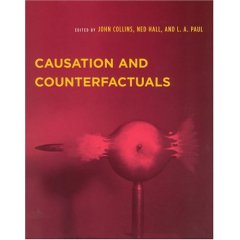by Daniel on February 27, 2008
More from Dan Hardie on the subject of Iraqi employees of British forces; specifically on those ex-employees who are currently stuck in Iraq and neighbouring countries, waiting for the Borders & Immigration Agency to process their applications. Absolutely scandalous. Once more, the Parliamentary switchboard is 0207 219 3000 and it is really not difficult to put a (polite) call in to your MP on the general theme that the Foreign Secretary and Prime Minister have made a public commitment to helping the employees, and delaying the asylum and resettlement applications for these people is as bad as abandoning them.
Dan writes, below the fold:
[click to continue…]
by Chris Bertram on February 26, 2008
Various European governments (and sundry commentators) are exercised by the Kosovan declaration of independence, on the grounds that this creates a dangerous precedent and will undermine the integrity of sovereign states. If Kosovo gets independence, they worry, then the Scots, the Welsh, the Basques and the Catalans won’t be far behind. Well that would indeed be a worry if the right principle is one that national groups may simply elect to separate on the basis of some supposed right of nations to self-determination. But as I’ve blogged before, there are other candidate principles that we could invoke. If we follow Allen Buchanan, and see secession as a remedial right for groups that have suffered serious injustice and sought and failed to obtain a remedy, then things will look different. The Catalans, Welsh and Basques may have been in this position in the past, but it is hard to see that they are now, given the combination of regional autonomy and language rights that they enjoy. The Kosovo Albanians, on the other hand have both suffered injustice and have no good reason to believe that a just settlement is possible within Serbia. Buchanan’s principle seems to discriminate in a plausible way.
by John Q on February 26, 2008
In the February edition of Prospect, William Skidelsky has a piece on the decline of book reviewing. As is standard for any adverse trend in the early 21st century, blogs get a fair bit of the blame. The write-off (lede for US readers) says
the authority of critics is being undermined by a raucous blogging culture and an increasingly commercial publishing industry
and the conclusion is
blogging is best suited to instant reaction; it thus has an edge when it comes to disseminating gossip and news. Good criticism requires lengthy reflection and slow maturation. The blogosphere does not provide the optimal conditions for its flourishing.
As a slow, mature critic, I’m sure Skidelsky is well placed to make authoritative judgements of this kind, based on the kind of lengthy reflection unknown to gossipy bloggers. Still, it would help us instant-reaction types to follow him if he had, you know, cited some actual blogs, perhaps even some that run book reviews.
by Henry Farrell on February 26, 2008
Hilzoy, “rejoicing the departure”:http://obsidianwings.blogs.com/obsidian_wings/2008/02/ding-dong-the-w.html of the truly odious William J Haynes II, provides this mind-squirbling story from Haynes’ earlier career.
In this amazing brief, Haynes argued that bombing a nesting site for migratory birds would benefit birdwatchers, since “bird watchers get more enjoyment spotting a rare bird than they do spotting a common one.” Moreover, he added, the birds would benefit as well, since using their nests as a bombing range would minimize “human intrusion”. The judge’s comment on this novel line of argument: “there is absolutely no support in the law for the view that environmentalists should get enjoyment out of the destruction of natural resources because that destruction makes the remaining resources more scarce and therefore more valuable. The Court hopes that the federal government will refrain from making or adopting such frivolous arguments in the future.” (pp. 27-8)”
I once voiced my suspicion that Fafblog had retired because nothing, not even an entity with the godlike powers of the Medium Lobster, could out-lunatic Norman Podhoretz. I was wrong. William J Haynes II could out-lunatic Norman Podhoretz without raising a sweat. Sadly, the Medium Lobster isn’t even in the race.
by Harry on February 25, 2008
I’m responding tonight to a talk by Wendy McElroy entitled Don’t Vote — Its Immoral, and it Wastes Your Time. I haven’t yet read the talk, so like everyone else I am trying to work out my response with a bit of guesswork (I’m going by what she says here, and using some license to work out my own thoughts). I’ll post my own comments later, but for the moment, I’m dismayed to see the reaction the publicity for her talk has provoked. Here is my colleague Lester Hunt’s account (he has borne the brunt of it) and here is the article from the local paper, followed by a remarkably anti-intellectual set of comments. There’s nothing like this sort of reaction to disarm a respondent — I find myself wanting to defend her in my comments. But it’s ok, I won’t.
by Eszter Hargittai on February 25, 2008
I should be prepping for class, but I want to add an alternative perspective to a question raised about Google’s popularity. The Freakonomics blog features an interesting Q&A with Hal Varian today, I recommend heading over to check out how Google’s chief economist answers some questions submitted by readers last week.
The Official Google Blog takes one of the questions and posts an expanded response to it. The question:
How can we explain the fairly entrenched position of Google, even though the differences in search algorithms are now only recognizable at the margins?
Varian addresses three possible explanations: supply-side economies of scale, lock-in, and network effects. He dismisses all of these (see the post for details) and then goes on to say that it’s about Google’s superior quality in search that makes it as popular as it is.
I don’t buy it, especially the dismissal of the lock-in factor. [click to continue…]
by Harry on February 25, 2008
I didn’t find entries on Sir Alec Clegg (a brief mention here), the late Gordon Hainsworth, Sir Peter Newsam, or my dad. (Clegg was only one of the heroes of my childhood home — I am glad to see that the other has a nice long entry). There is, indeed, an entry on Otto Clarke but his entry is far, far, shorter and less informative than the entry on his considerably less accomplished son. (My dad’s non-entry is infinitely shorter than the one for his considerably less accomplished son, which JQ nicely salvaged from my daughter’s attempted sabotage).
I’m not really criticising the wikipedians, but the lacunae do show up a problem, which is that there will be a tendency for people whose accomplishments, however considerable, precede wikipedia’s birth to be much less well documented than those whose accomplishments, however minor, postdate its birth. Any more names of the missing?
by Henry Farrell on February 25, 2008
“Dani Rodrik”:http://rodrik.typepad.com/dani_rodriks_weblog/2008/02/mr-kristol-you.html catches up with Bill Kristol a couple of decades later …
I have waited a really long time to do this, and I am happy that Bill Kristol finally gave me an opportunity with his column in today’s New York Times. … he was my dreaded instructor long ago in two of the classes that I took as a Harvard undergraduate … In each course, we had to write short papers once every couple of weeks. I can say that my performance on these papers, which Kristol graded, was fairly consistent. The essay on Machiavelli? Here is a C-. The essay on the Federalist Papers? Here is a C. John Stuart Mill? Well, how about, yes you guessed it, another C. You can say that Kristol did his best to discourage me from pursuing a career in political science.
… He walked into the classroom and his first words were: “Hello, my name is Mr. Kristol.” To underscore the point that he was that, and not Bill or any other friendly appellations by which we students may have chosen to address him, he went to the board and wrote “Mr. Kristol.” I may have been a poorly adjusted Turk in my first year in the U.S., but this still struck me as odd. … Well, Mr. Kristol’s column today takes aim at Barack (and Michelle) Obama, and does so quite unfairly in my view. … What caught my attention was this passage: [where Kristol says that in almost every empirical respect, American lives have in fact gotten better over the last quarter-century.] … Really? … for a high-school graduate, the odds that his compensation would have fallen by more than 10% is 50-50. Note that even college graduates have not seen any income gains since around 2000. … some groups have definitely been left worse off–not just in relative but also in absolute terms. So statistics aside, who do you think has a better sense of what has happened to “regular folk” since 1980? Michelle Obama or Mr. Kristol?
by Kieran Healy on February 25, 2008
 Amazon just suggested I should buy Causation and Counterfactuals edited by Collins, Hall and Paul. Maybe this means the Amazon recommendation engine is broadening its scope, and we’ll soon see suggestions like, “People who bought this book also married …”
Amazon just suggested I should buy Causation and Counterfactuals edited by Collins, Hall and Paul. Maybe this means the Amazon recommendation engine is broadening its scope, and we’ll soon see suggestions like, “People who bought this book also married …”
by John Q on February 24, 2008
In mathematics, the monster Lie algebra is an infinite dimensional generalized Kac-Moody algebra acted on by the monster group, that was used to prove the monstrous moonshine conjectures.
[click to continue…]
by John Q on February 24, 2008
Research on human stem cells has been at the centre of one the more ferocious science policy debates in the US, only partially cooled off by recent claims that the necessary cultures can be generated from samples taking from adults, rather than from human embryos destroyed in the process.

“Stem Cell Century: Law and Policy for a Breakthrough Technology”
by Russell Korobkin (with a joint chapter on patents by Stephen Munzer) is a useful guide to the way the debate evolved in the US. There doesn’t seem to have been anything like the same controversy in Australia, although there has been at least one notable example of what might be called common or garden scientific misconduct.
Perhaps because the US stem cell debate is a bit remote for me, I found more interest in the chapters showing how commercial interests in research collided with general scientific ideals of free communications and with donors’ anger when they found that their donated (or appropriated) body tissue had been used to make highly profitable products.Kieran

wrote the book on the latter topic
.
Much of the debate about the relationship between donors and researchers on these issues has been cast in the framework of “informed consent”, which I think is not very helpful here. Neither I think is a focus on property rights over body parts. The real issue is how to finance the provision of public goods like medical research, characterized by highly uncertain returns.
I’ve looked at how to pay for medical research before and generally reached the conclusion that patents are not the best way to go, a view that is strengthened by a reading of Stem Cell Century. Looking at the conflicts discussed here, it seems that they might be less severe if successful research were rewarded by prizes, including ex gratia payments to crucial participants such as tissue donors.
by Henry Farrell on February 22, 2008
Megan McArdle “responds”:http://meganmcardle.theatlantic.com/archives/2008/02/tax_me_more.php to my earlier “post”:https://crookedtimber.org/2008/02/16/revealed-preferences/ on taxes and revealed preferences and really makes a bit of a mess of things. More detailed discussion below the fold. [click to continue…]
by Brian on February 22, 2008
After the Super Tuesday primaries in the U.S., there was a lot of discussion that various big-name endorsements seem to have not made much difference. Most notably, despite being endorsed by Governor Patrick and Senators Kennedy and Kerry, Barack Obama got beaten heavily in Massachusetts. But what struck me at the time, and what seems to have been confirmed by subsequent contests, is that (at least in Democratic primaries) mayoral endorsements seem to make an enormous difference in the campaign. Not only does the candidate with the most endorsements seem to routinely win, they seem to outperform their poll numbers.
[click to continue…]
by John Holbo on February 21, 2008
Just to be clear: I have the highest respect for Brian Leiter’s scholarship and have personally ordered a copy. That said – and while we are on the subject of strange covers showing up on Amazon – there is a problem. I can’t help but feel Routledge must be somehow responsible.
Let’s assume for the sake of argument that we witness the first stage of the process here [Powell’s Books]:

At this point, someone leaned over someone’s shoulder: ‘Dude, it should have, like, an S in it.’
Thus, the happy final product displayed on the Amazon page

My colleage, Axel G., noticed it. (Don’t know whether he cares for getting credit, but now he has it.)
by Chris Bertram on February 21, 2008
Martin O’Neill has “an interesting review”:http://www.newstatesman.com/200802210046 of a new book about Starbucks.
bq. In the centre of Xi’an, the ancient Chinese capital, there is a gleaming concrete and glass Starbucks. Although a caramel macchiato costs more than a slap-up lunch for four in any of the city’s traditional cafes, this has not stopped it from doing brisk business.
Read the whole thing, as they say.




